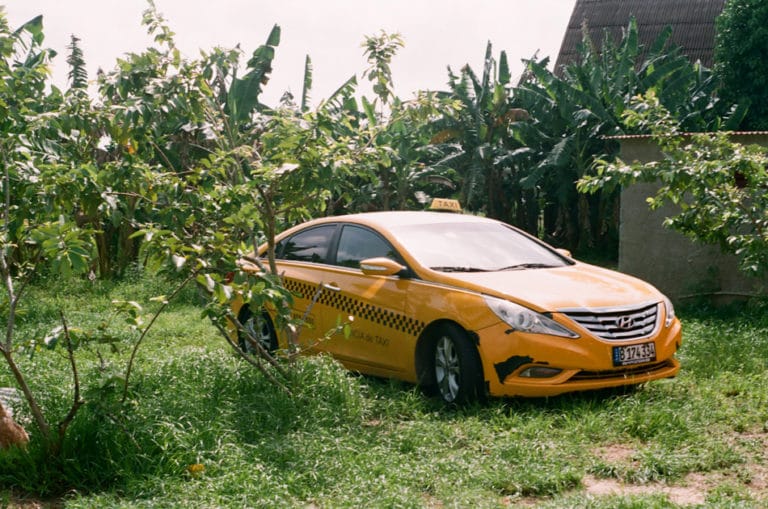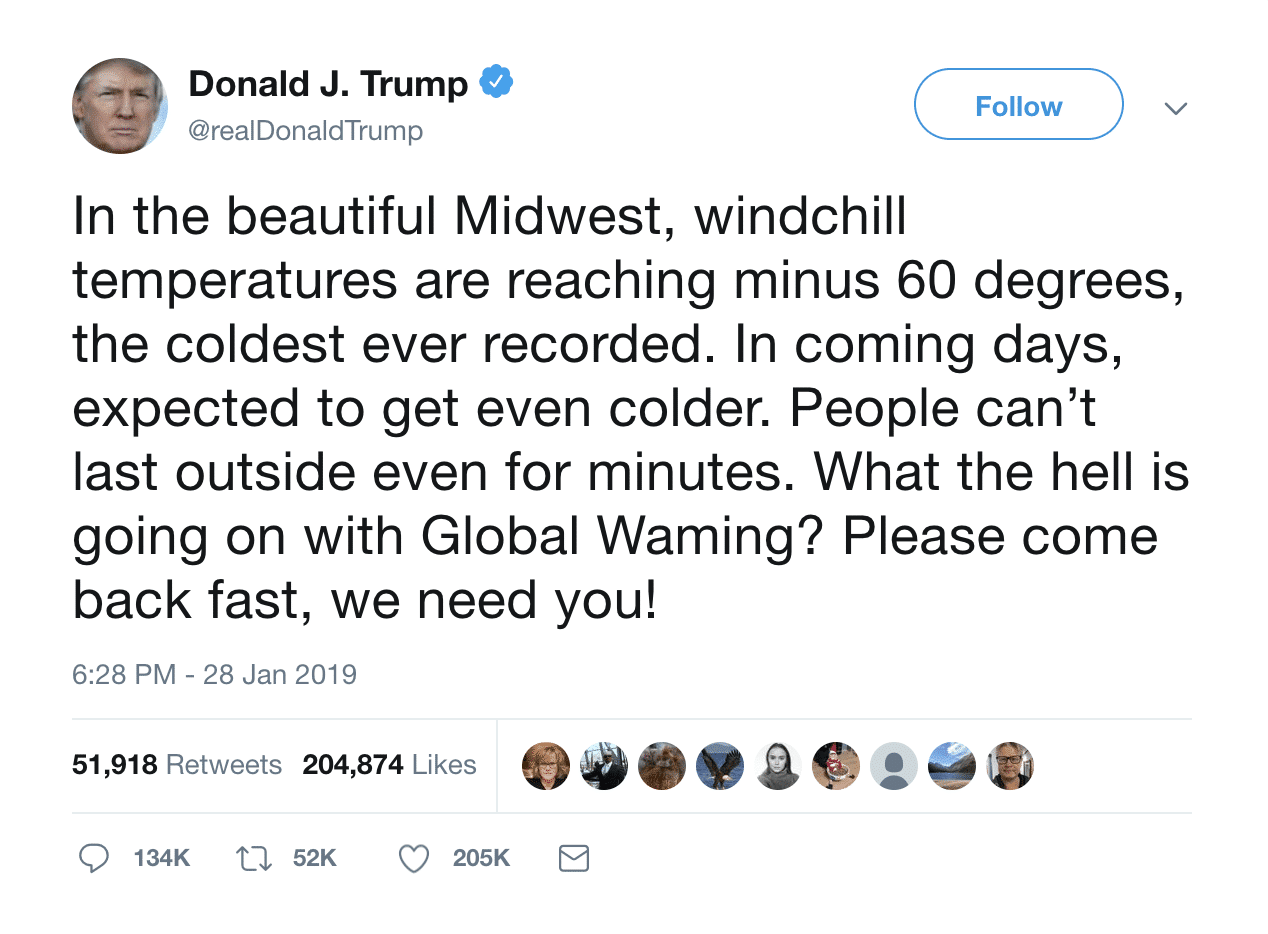Climate change denier Trump is preparing his empire for rising sea levels

“In the beautiful Midwest,” tweeted the beautiful U.S. president, “Windchilll temperatures are reaching minus 60 degrees, the coldest never recorded. In coming days, expected to get even colder. People can’t last outside even for minutes. What the hell is going on with Global Warming? Please come back fast, we need you!”
Prior to delving into the hypocrisy of the president and his fellow climate-change denying billionaires, it is important to set the record straight and debunk the misleading insinuation he makes in his tweet, according to which the chilling temperatures in Midwestern U.S.A. indicate that climate change is in fact a Chinese hoax.
As highlighted repeatedly by scientists, weather and climate are two separate things. Climate constitutes the long-term behavior of the atmosphere, while weather refers to its characteristics over a short period of time. This means that while the overall climate of the planet is warming, and winters gradually heat up, we are still due to experience dips in temperatures at specific points in time, only these will gradually become more and more infrequent.

In a New York Times piece, Kendra Pierre-Louis provides the perfect analogy to highlight this point, stating that, “Weather is how much money you have in your pocket today, whereas climate is your net worth. A billionaire who has forgotten his wallet one day is not poor, anymore than a poor person who lands a windfall of several hundred dollars is suddenly rich. What matters is what happens over the long term.”
Among the countless entities attempting to obliterate the myth regarding this cold spell is the National Oceanic and Atmospheric Administration (NOAA). In a statement from January 30, NOAA explains that the drastic fall in temperatures is linked to the polar vortex, which today tends to more frequently escape the Arctic and dip south towards the continental United States due to moisture and warm air that alter the movement of the jet stream.
Yet, as stated before, we can expect less and less of these blasts of frigid temperatures and anticipate more heat waves, as long as CO2 emissions into the atmosphere continue to rise. According to a 2009 study, for instance, since 2000 there were twice as many record high temperatures than record lows recorded in the United States, compared to the 1950s, when the two were more or less equal. Even now, as portions of the northern hemisphere experience a brief chill, other parts of the world, such as Australia, face record-high temperature spikes.
The bitter irony is that Trump knows full well the danger and imminence of climate change; he, most certainly, does not believe the statements he blasts on Twitter. This can be indicated by the lengths he goes to protect his own properties in areas affected by global warming. In 2017, for instance, Trump International Golf Links obtained authorisation to construct a wall around the president’s golf course in Doonbeg, Clare County and Ireland. What was one of the primary reasons cited to justify the request for the wall? Rising sea levels resulting from climate change of course.
The U.S. president is not the only billionaire actively engaging in climate change denial while covering his own ass, and, most importantly, maximising profits. Recent evidence indicates, for instance, that the oil giant Exxon Mobile has been aware of climate change and the role the fossil fuel industry plays in creating it since 1977, following thorough research conducted by their own company. But instead of taking meaningful action against it, the company chose to squeeze whatever value it can from the dying planet, while establishing the Global Climate Coalition, which for decades has been questioning scientific research regarding climate change, thwarting governmental initiatives to curb emissions, and launching smear campaigns against politicians who promote climate policy.
Peter Thiel, the co-founder of PayPal contributed a fortune to Seasteading Institute, which sought to build floating cities due to rising sea levels. Hotel chains are teaming up with food production companies to profit off of those fleeing from natural disasters, and banks, such as JP Morgan, are coming up with special loans designated to protect properties of people living in coastal areas.
And so the next time Trump or any other billionaire or corporations chime in to the roaring cacophony of climate change denial (or pay other figures to do so on their behalf), it is important to not only debunk their statements with actual science, but also alert the public to the fact that the most vocal among these climate change deniers are also the most diligent in preparing for it. We must call a spade a spade and recognise climate change for what it has truly become for the powerful and wealthy: a steadily rising and terribly promising market.




